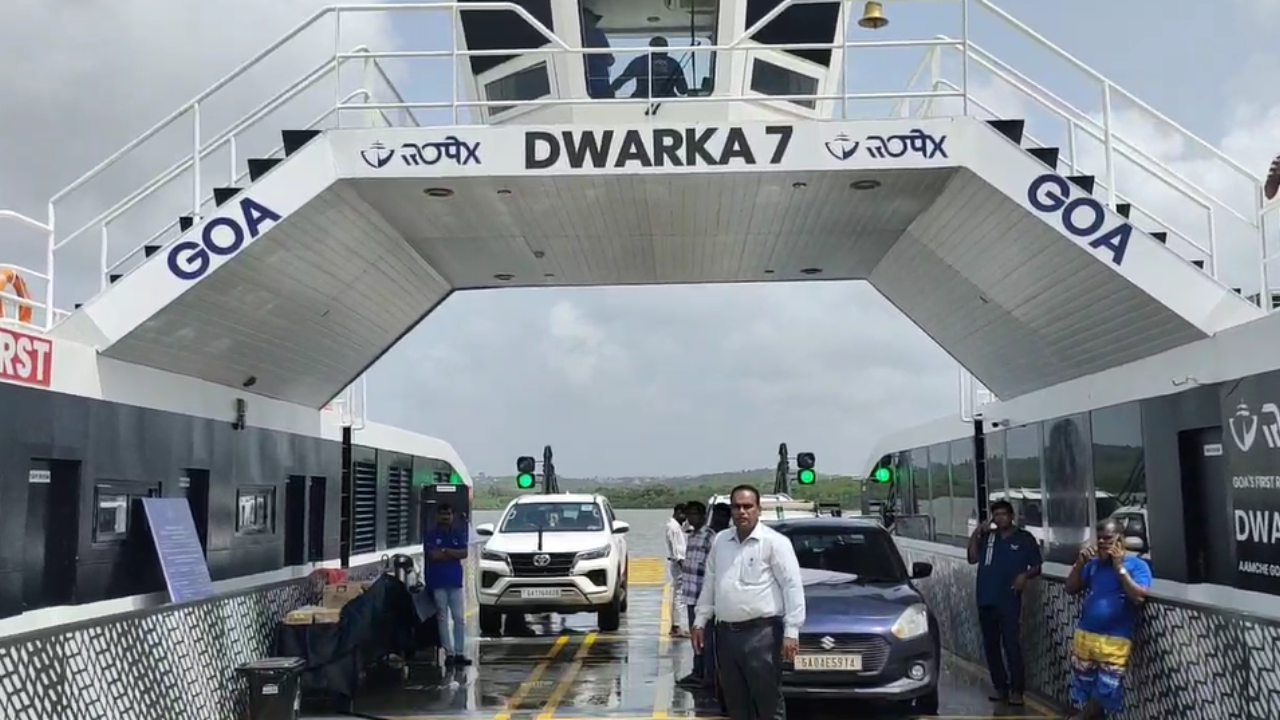
PANAJI: Days after a trial run and repeated postponements prior, two modern Roll-on/Roll-off (RoRo) ferries - Gangotri and Dwarka - will finally be launched on Monday, July 14 along the Ribandar-Chorao ferry route.
These ferries will cut total travel and waiting time to just 12 minutes, assured River Navigation Minister Subhash Phal Dessai speaking to reporters after inspecting the vessels today.
He said the service would provide a safe, faster, and more comfortable commuting experience while adding that the service would be extended to other routes after a review of the present ones.
“This is a new chapter in Goa’s river transport. We want people to give it a chance before criticising,” Phal Dessai said. “We’ll take a review after one month and consider extending the service to other areas as well. Even the fare structure will be reviewed based on feedback.”
Each RoRo ferry has the capacity of four conventional ferries and is equipped with ramps at both ends to allow smooth entry and exit of vehicles. The travel time from Ribandar to Chorao will now take just 5 to 7 minutes. “Earlier, six ferries operated with six engines. Now, we’re using just four engines for two Ro-Ros, which will help reduce the carbon footprint,” the minister pointed out. “We’ve also ensured better traffic management onboard, with separate markings for two- and four-wheelers to avoid chaos and confusion.”
Introduced by Vijay Marine, the new ferries also focus on passenger comfort and safety. An air-conditioned passenger compartment with a separate entry has been included, along with onboard medical kits and trained crew to handle emergencies. “Even the captain has undergone over 100 hours of training. We delayed the launch to ensure the entire crew was fully prepared to handle the vessel and emergencies,” Phal Dessai said.
The vessels are powered by two main engines with horsepower sufficient to withstand high currents and crosscurrents, ensuring reliability and safety.
The minister also stated that local panchayats, including those from Divar and Betim, have shown support for the initiative, even if a fare is introduced. “We’ve received positive feedback from stakeholders. People are ready to pay a small fee in exchange for faster and safer service,” the minister stated.
Although fare structures have not yet been finalised, Phal Dessai confirmed that daily commuters will be encouraged to use travel passes, and school buses and certified vans may be considered to receive reduced rates. “We last revised ferry rates in 1996. This time, we’ve increased them by just Rs 5. Ferry operations generate about Rs 60 lakh annually, but we spend Rs 76 crore. A minimal fare is necessary to support modernisation,” he explained.
Phal Dessai also addressed criticism about delays, saying, “People are asking why it took so long. The answer is simple, we wanted to ensure the crew was thoroughly trained and the vessels were ready. Safety is our priority.”
Looking ahead, the minister said the success of the RoRo ferries could pave the way for a wider rollout of high-tech water transport services. “If this model works, we’ll explore similar services in other locations. We’re also considering the use of modern vessels to boost tourism along Goa’s 100 km of navigable rivers,” he said.